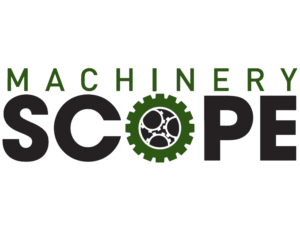What type of equipment qualifies
- Compact and Utility Tractors
- Row Crop Tractors
- 4wd Tractors
- Combines
- Sprayers
- Forage Harvesters
- Cotton Harvesters
- Windrowers
- Skid Steers
- Compact Track Loaders
- Tractor Loader Backhoes
- And More!
What manufacturers are covered?
Most of the major brands of farm and compact construction equipment are eligible for coverage. This includes, but is not limited to, John Deere, Case IH, New Holland, Massey Ferguson, Fendt, Claas, Versatile, Deutz Fahr, McCormick, Bobcat, Kubota, Caterpillar, JCB, and more.
How old can my equipment be to qualify for coverage?
Machinery Scope offers coverage on tractors less than 15 years old and 5,500 hours. Additionally, combines, cotton harvesters, forage harvesters, skid loaders, sprayers, and windrowers less than 15 years old and less than 3,750 hours are eligible for coverage.
How do I buy extended warranty coverage?
Our coverage is available for purchase through an equipment dealership. Equipment that has OEM base warranty remaining does not require an inspection. Any equipment outside of the factory base warranty will require a dealer inspection to verify the equipment does not have any pre-existing conditions that would otherwise be covered under the terms of our contracts. As soon as this is complete, we can process the purchase for your extended service contract through your equipment dealer.
Does the policy transfer if I sell the equipment before the contract expires?
Do I always need an inspection to purchase coverage?
In most instances, equipment within the base warranty will not require an inspection to qualify for enrollment. Regardless, we recommend getting an inspection anyways prior to the base warranty coverage expiring. Your base warranty will provide the best coverage, so it is advisable to identify any imminent failures.
Used equipment outside of base warranty will require a dealership inspection to flush out any equipment that has pre-existing conditions. In most cases, we will only require a physical inspection of the machine with visual inspection of the fluids to ensure the fluids are not contaminated. The advantage of this is real time qualification by the dealership. Other providers may require the physical inspection plus fluid samples that get sent off to be scanned. This may require several weeks to get results from the fluid scans.
What advantages are there to having an inspection done?
Inspections can be done at any OEM dealership. A routine inspection can limit your risk by having an experienced service mechanic assess the equipment before you buy, sell, or go to the field. We are confident in the skills and integrity of trained service technicians. If they are confident in the equipment, that should be worth something. Preventative inspections combined with coverage will be your best way to mitigate risks.
What is the difference between the types of coverage available?
The parts covered are the main difference between each plan. It is important to review the breakdown of what is covered by each level of protection being offered in the terms and conditions of the coverage.
- Powertrain: This plan includes the components pertaining to the engine and transmission that oil touches. Our plans will also provide coverage on additional related components.
- Powertrain+: Covers the hydraulic pumps and valves. In some instances, Powertrain+ will need to be purchased to cover hydraulic drive components, such as factory installed rear-wheels assist on combines.
- Ultimate: covers several components often found in comprehensive coverage but is not to be considered “full machine” or “bumper-to-bumper.” Covered components include, but are not limited to starter, alternator, engine block heater, ac compressor, factory installed auto steer, front axle suspension, ROPS and FOPS.
We are always happy to talk through the details of the different solutions that we can offer so that you have the information and full transparency to decide what is best for your operation.
Where can I take my equipment if I have a failure?
The repair work is to be completed by a local OEM dealer. OEM dealers are expected to have the tools, resources, and talent to complete the repair in a timely and effective manner. While you may have a local independent repair shop that you like to use, there is not an industry standard for independent repair shops, and they do not always have equal access to all the same tools and resources as an OEM dealer. Additionally, OEM repairs are usually backed by a 12-month parts and labor warranty from the manufacturer and/or the dealer.
What types of parts are used to make repairs?
Whenever available, we require OEM replacement parts. Depending on the nature of the repair, we will reimburse for an overhaul or a rebuild on an engine or transmission failure. At times we might pay for OEM remanufactured components (such as an engine). Each repair scenario will dictate what parts should be used or if the failed component(s) should be rebuilt or replaced.
Is diagnostic time covered?
We will reimburse reasonable diagnostic times. Sometimes an OEM will request that a dealer run additional diagnostic tests that serve the interests of the OEM and their engineering team. This is not a frequent event, but a mutual understanding of this kind of situation can mitigate frustrations. We will only pay for the reasonable diagnostic times required to make a proper repair.
What factors determine how much my plan will cost?
As you can imagine, the cost of the coverage varies. This will depend on the following factors:
- Age of the equipment
- Current hours
- Type of equipment
- Horsepower
- Usage
- Prior claims history on that model (or series)
- Requested Years of Coverage
- Requested Hours Per Year
- Coverage Type (Powertrain, Powertrain+, or Ultimate)
- Deductible
What are the benefits of having extended warranty on my equipment?
There are numerous reasons why having an extended warranty plan might make sense for your operation. Besides being a risk management tool on your operation, having extended warranty remaining on used equipment will translate to improved resale value. For example, we estimate that used equipment with at least one year and 250 hours of coverage will have improved resale value between 1% and 5%. For dealerships, equipment that has coverage will sell more quickly than those that do not (assuming everything else being equal).
Most importantly, an extended warranty plan can save you from the financial burden of a major repair bill. Extending the protection on your equipment provides peace of mind by helping to turn an unknown variable cost into a known fixed cost.
Are there limits to the coverage that I should know about?
Coverage from Machinery Scope will have a total limit of coverage for the term of the contract. This will be stated as a fixed dollar amount equal to 50% of the retail value of the equipment at the onset of the coverage, not to exceed $125,000.
Some companies may also include a stop-loss provision or a limit that is placed on the amount paid per claim. For example, a contract having this provision may state that it has a $100,000 total limit but will only cover up to $30,000 per claim. On large equipment, a major engine or transmission failure might cost $45,000. In this example, only $30,000 of the $45,000 would be reimbursed for the repair. This does not mean coverage has expired in total. It is likely to have a balance remaining on the contract’s total limit of coverage. Machinery Scope extended warranty contracts do NOT have a stop-loss provision.
What’s the difference between extended warranty, extended service plans, purchased protection programs, extended protection plans, etc.? Is it all the same?
This can be confusing. In practical terms, extended service plans and extended warranty plans are meant to protect the equipment owners from the same thing… the enormous cost of unexpected repairs that stem from a defect in components that cause a premature failure. The terms of the coverage may vary depending on the plan provider, but the concept is the same. Additionally, most equipment owners refer to these products collectively as “extended warranty.”
What are the key differences between all the companies that offer coverage?
Most OEM’s offer some type of coverage. There are also independent providers, such as Machinery Scope, that offer coverage for a wide range of equipment types, makes, and models of equipment. We are proud to offer our solutions to equipment dealers so that we can protect their mainline offerings as well as competitive trade. Machinery Scope is also proud of being deeply rooted in the equipment industry, both in our farming operations and within the equipment dealerships. Our roles within the equipment dealership have includes, sales, sale management, operational management, service technician, and service management. We understand this business and we are proud to leverage that to make it easy for our dealers and their customers to do business.
Another key distinction from one program to the next is how the programs are financially supported. Programs can be fully insured, reinsured, bonded, or backed by the financial strength of the administrator and/or the company offering the policies. Additionally, commercial extended service contracts are regulated differently by each state. Certain terms, products, and or programs will vary from state to state. It is not unreasonable to ask questions. At Machinery Scope, we administer the plans we provide and are proud to be backed by CNA to provide you with a product that you can count on when you need it most.


